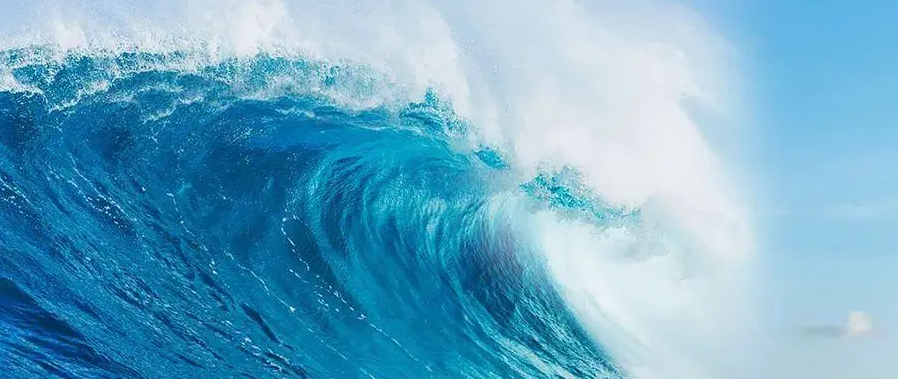Acting Assistant Secretary for Energy Efficiency and Renewable Energy, Alejandro Moreno, expressed optimism about the transformative possibilities of marine energy technologies. He stated, "Marine energy technologies have incredible potential to provide clean electricity as well as clean water. These projects represent DOE's first significant investment in marine energy serving the blue economy market and will advance technologies that can meet these needs and help achieve President Biden's goal of a net-zero-emissions economy by 2050."
The seven selected projects are an integral part of the DOE's Water Power Technologies Office's (WPTO) visionary initiative, Powering the Blue Economy™. Six of these projects are specifically tailored to provide low-cost, emission-free, and drought-resistant drinking water during disaster-relief operations and for underserved small communities.
The projects fall under four primary areas of focus:
Proving Robust and Reliable Designs of Wave-Powered Desalination Systems
Oneka Technologies USA, Inc.'s Oneka IceCube—Emergency Relief Wave-Powered Desalination (Fort Pierce, FL): The project aims to optimize the Oneka IceCube, a wave-powered desalination device designed for emergency relief applications. The team seeks to enhance technical performance, durability, and reliability to maximize water output, ease deployment, and facilitate commercialization. (Award amount: $1,996,849)
Sea Potential, LLC's DUO-DS Wave-Powered Desalination System Sea Trials (New Canaan, CT): The project seeks to deploy, test, and accelerate the commercialization of the DUO-DS wave-powered desalination device, which employs reverse osmosis to generate freshwater from seawater. The team will conduct trials off the coast of Massachusetts to gather essential performance data. (Award amount: $1,789,178)
Water Bros Desalination, LLC's Long-Duration Testing and Scalability of a Lightweight, Rapidly Deployable, Wave-Powered Reverse Osmosis System (Charlotte, NC): The project aims to advance the Wave-Actuated, Tethered Emergency Response Buoyant Reverse Osmosis System (WATER BROS) desalination system through multiple deployments at Jennette's Pier in Nags Head, North Carolina. The team will collect data, test device performance, analyze water quality and production, and monitor the environment at the deployment site. (Award amount: $1,568,114)
Reducing Risk and Validating Novel Components in Wave-Powered Desalination Systems
Oneka Technologies USA, Inc.'s Oneka IceCube—Subcomponents Breakthrough Innovations for Wave-Powered Desalination (Fort Pierce, FL): This project focuses on developing a self-cleaning seawater intake system, optimizing reverse osmosis membrane lifespan, and improving hydraulic components' efficiency and uptime. The sub-components will undergo validation, including in-ocean testing near Fort Pierce, Florida. (Award amount: $1,395,579)
North Carolina State University's Co-Design of the Pumping System and Controller for a Mobile, Anchorless, Wave-Powered Desalination Platform (Raleigh, NC): This project intends to transform Liquid Robotics' autonomous, uncrewed Wave Glider into a mobile, anchor-less desalination platform. The system aims to be rapidly deployable from near-shore locations and desalinate up to 1,000 gallons of water, with the ability to redeploy immediately after offloading desalinated water. Tank testing will be conducted at the University of Michigan, with open-water testing at Liquid Robotics' Hawaii Marine Operations Facility and Test Range. (Award amount: $1,608,160)
Supporting Advancements in Marine Energy Desalination More Broadly
Binghamton University's Off-Grid Tidal Turbine-Driven Centrifugal Reverse Osmosis System (Binghamton, NY): This project will develop, test, and establish proof-of-concept for an integrated tidal desalination system that produces drinkable water from the rotational power of hydrokinetic turbines, bypassing the need for electrical energy. Lab-scale turbine testing will take place at Lehigh University's Tidal Turbulence Test Facility. (Award amount: $607,819)
Evaluating the Feasibility of Establishing an Ocean Current Testing Facility
Florida Atlantic University's U.S. Ocean Current Marine Energy Test Facility Feasibility Assessment (Boca Raton, FL): The project will assess the feasibility of establishing an ocean current test facility off the coast of Palm Beach County, Florida. This facility would offer grid-connected technology testing for current energy converters, reducing barriers to testing and accelerating the path to commercial readiness. The assessment will include preliminary analysis of infrastructure needs, coordination with regulatory agencies, and a preliminary economic impact assessment. (Award amount: $800,000)
